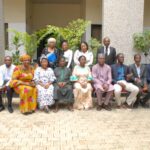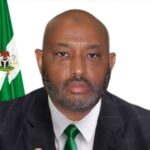By Ben Nwosu & Ndu Nwokolo
A fair democratic election is held in an atmosphere free of mortal dangers and ideally free from vote rigging. However, the approaching general elections of 2023 in Nigeria continue to warrant concerns due to the kind of insecure environment in which it is likely to take place. The country’s North East remains a troubled spot with terrorist killings by Boko Haram and the Islamic States in West Africa Province (ISWAP) even though Nigerian authorities claim that they have been weakened. According to April 2022 UN reports, the terror groups still carry out armed attacks, rape and robbery against vulnerable groups in the North East. The North West is another living anarchy based on the activities of deadly bandits who rob, rape, kill and kidnap. A 2021 report on banditry in the North West recorded 2,735 stolen animals, 91 victims of abductions and payment of over €77,500 in ransom by the abductees’ families and friends. Also, in the first quarter of 2022, 76 incidents were reported in the region, including rape, assaults, cattle theft and kidnappings. At the moment, the condition is not abating. The North Central is besieged by terrorists, ethnic militias and bandits. In the first quarter of 2022, the North Central had its share of terrorist killings, with a total death of 16 persons. South West Nigeria is not spared from violence with the recent massacre of worshippers in Owo, Ondo State. Kidnapping remains rife in the South-South and South East of Nigeria, and the additional weekly lockdown imposed by different factions of the separatist Indigenous People of Biafra (IPOB). Some of these groups target the facilities of the election management body.
The Nigerian state appears helpless in the face of this security decline and relates with the increasingly impetuous non-state armed groups from a position of weakness. Sadly, the state pays ransom to release kidnapped citizens, as supported by several and even the latest revelation in a BBC documentary which reports that the Government paid ₦60,000,000 before the nearly 300 school girls kidnapped in 2021 in Jangebe Zamfara State were released. These developments, which have only gotten worse with the approach of the election year, prompt worries about the security preparedness of the Government for the elections. The continuing decline of the ability of the state to repel security challenges under a condition where terrorists, bandits and separatists contest the sovereignty of the state prompts worries that the state appears unprepared in the security sense for the presidential and other imminent national elections. This edition of Nextier SPD Policy Weekly explores the feasibility of successful free elections in 2023.
HUBS OF INSECURITY THAT COULD MAR THE ELECTIONS
The North West of Nigeria is so troubled by banditry that a traditional ruler in Zamfara State, the Emir of Yandoto invited a bandit leader with a history of multiple killings and attacks on the communities and invested him with a traditional honour. Similarly, a breakaway terror group from Boko Haram called Ansaru is holding sway in Birnin Gwari Local Government Area of Kaduna State. It is claimed that the Ansaru terror group has begun to inter-marry with community members and also recruit new members from the community. Ansaru has in addition, banned all political activities in Birnin Gwari Emirate. Also, in July 2022, bandits were as daring as to attack a presidential convoy around Dusinma in Katsina State, though without success. But there is neither a report of human losses on the side of the bandits nor subsequent arrest.
In the North Central, 30 soldiers and 7 policemen were killed in a terrorist ambush on the 29th of June 2022 at Shiroro, Niger State. Also, in July 2022, terrorists successfully attacked the Kuje correctional centre in Abuja and freed over 600 inmates. Further, Boko Haram terrorists carried out a twin attack in the later part of July 2022 on the presidential guard team along Bwari-Kubwa road in Abuja and another at the Zuma Rock military checkpoint in the precinct of Abuja, which resulted in the death of six soldiers. Besides, there is a standing threat from the terrorists that they will kidnap governor El Rufai of Kaduna State and President Buhari.
In the South West of Nigeria, Amotekun continues to intercept persons considered invaders as they move in droves into the region. While the mission of these persons is unknown, the recent terrorist attack in Ondo State, the first of worshippers at St Francis Catholic Church Owo in June 2022, led to several deaths. Also, another attack on a construction site which also led to some deaths is another reason for apprehension in the zone. Further in Southern Nigeria, the South East is a troubled spot as secessionist groups’ almost one-year imposition of lockdown every Monday remains successful. Efforts by the people to return to normal activities on Mondays have resulted in deadly attacks by criminals. The state fails to show the capacity to protect people if they come out on Mondays. Thus people remain in their homes on Mondays due to fear. Equally, as the 2023 elections approach, facilities of the Independent National Electoral Commission (INEC) and even its personnel come under periodic attacks.
Several reports of voter registration exercises disrupted in parts of North and South Nigeria without any reassuring state response. Equally, several reports of kidnapping in the South East result either in the murder of victims or release after payment of ransom, with only a few instances of law enforcement success against kidnappers. South-South is just as troubled as other parts of the southern region. Recently, a militant leader, Asari Dokubo, openly walked round the streets of Port Harcourt with his fighters armed with sophisticated automatic weapons. Besides that act of brazen and open show of military force by a private individual, the Governor of Rivers State Mr Nyesom Wike, alleged that the state had obtained intelligence that some politicians were recruiting cultists, ex-convicts and thugs for the forthcoming 2023 elections.
The above general picture of Nigeria’s security environment in the 2023 general elections holds potential for far-reaching implications for the democratic process and even national stability. We consider a few possibilities below.
IMPLICATIONS OF NIGERIA’S SECURITY ENVIRONMENT FOR THE 2023 ELECTIONS
There are some possible directions that the security challenges in the country may yield since the increasing success of the terrorists and bandits tend to imbue them with increased bravado. One of the possibilities is that elections may be inconclusive given that criminal elements in some areas may order residents not to participate or even impose a lockdown during the election. The IPOB, for instance, has a history of successfully imposing lockdown in the South East. The Ansaru has recently banned political activities in parts of Kaduna State. Such disruptions are possible given that less well-organised thugs had successfully disrupted voter registration. During the coming elections, the criminals will likely work with the notion that the state does not do enough to prevent or repel attacks against her electoral institutions. They would anticipate that polling stations in most parts of the country may not be well protected and probably unleash mayhem in any ones they target.
The prevalence of fear would also affect voter turnout. The high demand for voter registration may mean little for actual voting if there are obvious dangers for voters. The concentration of security forces to protect voting areas is usually strong in urban areas. The weak and poorly protected spots in rural locations which altogether aggregate a substantial voting population could be vulnerable to easy attacks and disruption of the coming election. Due to the lack of security guarantees, it is doubtful that the election could have sufficient ad-hoc staff to cover the elections, particularly in the less well-protected electoral districts which is scattered across the country.
If the distant possibility of the kidnap of high-profile leaders like governors and the president becomes a reality, it is likely that all the resources put into the preparation of the election would have been wasted. This is because such danger would mean a coup and takeover of the state. In effect, we do not rule out the possibility of an Afghanistan scenario in which terrorists and or extremists forcefully take over state power to dictate their extremist ideas to the entire population.
RECOMMENDATIONS
The state should carefully examine the sources of her security flaws in terms of manpower capacity and technical resources and invest the effort to remedy them. This should take the form of remedying manpower gaps with further recruitments in the armed services, training for containing terror, banditry and insurgency and acquisition of state-of-the-art technology and arms for combating terror and other crimes.
Sequel to number 1 above, the Government should deploy security agents heavily in the communities where the terror groups have gained ground, gather enough intelligence on them and track them to their base for proper neutralisation.
The reports of attacks on INEC institutions and disruption of voter registration did not attract sufficient measures, probably due to a lack of manpower and materials. The Government should therefore carefully use the police and other armed services to harness the services of non-state security outfits, especially the vigilantes, to support security provisions during the elections. This is a stop-gap measure that could support the coverage of areas without or with limited government presence. Mixing the non-formal security personnel with the formal security outfits would help in closing the manpower gaps during actual elections in 2023. Above all, the technology of security, such as CCTV and several others, should be deployed to counter any intention of disruption in the election.
The threat of the kidnap of the President by terrorist groups should not be taken for granted. They had achieved unusual successes against state security forces in the recent past. So, they may be prompted to try further. Thus, while enhancing security around the country, it is essential that the armed services also have an internal intelligence system for detecting moles within their fold. The successful attacks against the state and the bravado of the terrorists in doing so and making wild threats may be connected with some internal flaws in the security system. Therefore, there is a need to search within.
Achieving successful general elections in 2023 requires honest inter-party engagements against the rising national security flaws. While the state security agencies should be accountable to the state and not to the Government in power, the reverse is the case. Without a sincere interest in achieving free, fair and democratic elections, political parties will want to explore these rising national security flaws to their advantage.
POLICY RECOMMENDATIONS
1. The state should carefully examine the sources of her security flaws regarding manpower capacity and technical resources and invest the effort to remedy them.
2. Government should deploy heavily in the communities where the terror groups have gained ground.
3. Government should carefully use the police and other armed services to harness the services of non-state security outfits, especially the vigilantes, to support security provisions during the elections.
4. While enhancing security around the country, it is important that the armed services also have an internal intelligence system for detecting moles within their fold.
5. Achieving successful general elections in 2023 requires honest inter-party engagements against the rising national security flaws.
CONCLUSION
The current security environment in Nigeria is disturbing. The tendency to get worse is quite high as the country prepares for a major election in the next six months. It does not appear that the preparation for the election sufficiently factors in new dimensions of security threat in the country and the specific attacks on electoral institutions. The election may end up derailed or not taking place in several places if the spate of security challenges is not consciously and systematically brought to a stop.
*Dr. Ben Nwosu is an Associate Consultant at Nextier SPD; Dr. Ndu Nwokolo is a Managing Partner and Chief Executive at Nextier SPD.



